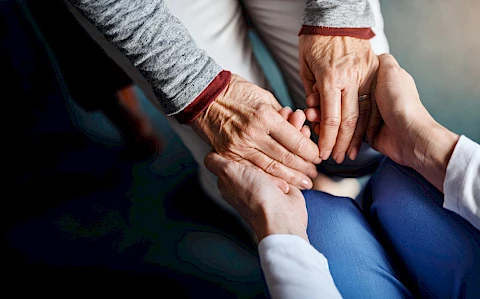
For many seniors, chronic pain is an unfortunate reality. Whether it's arthritis, back pain, or another persistent issue, the discomfort can be challenging to manage. When they have good strategies, caregivers can significantly improve the quality of life for their loved ones.
An Overview of Chronic Pain
Chronic pain in seniors is defined as pain that lasts for months or even years. It's often caused by conditions such as arthritis, osteoporosis, or past injuries. The impact extends beyond physical discomfort; it can also affect a senior's quality of life, interfering with their ability to enjoy daily activities. This makes it necessary for caregivers to be proactive in pain abatement.
Pain Management Techniques
When it comes to managing chronic pain, there are several techniques that caregivers should consider. Medication can be helpful, but is often best used as part of a broader strategy. Non-pharmacological approaches like physical therapy, acupuncture, and massage can also be effective in reducing pain levels. It's essential to develop a personalized pain management plan that works for the individual, taking into account their specific needs and preferences.
Adapting Daily Activities
Caregivers can help reduce pain by modifying tasks and routines. This might involve simple ergonomic adjustments in the home, such as rearranging furniture for easier access or adding supportive cushions to seating. Assistive devices, like canes or walkers, can also enhance a senior's mobility and comfort, allowing them to stay active and engaged.
Maintaining Physical Activity
Despite the discomfort, physical activity is vital for managing chronic pain. Exercise not only helps to reduce pain but also boosts overall health. Simple and safe activities, such as walking, swimming, or gentle yoga, can be beneficial. Caregivers should encourage consistent physical activity, tailoring exercises to suit the senior's ability and ensuring they're done safely. Always check with your loved one's healthcare provider before they begin any new physical activity.
Fostering Social Connections
Social connections play an important role in a senior's mental and emotional well-being. Chronic pain can make it challenging for seniors to maintain relationships, but caregivers can support them by encouraging phone calls, visits, or participation in community events. For those with limited mobility, virtual connections, like video calls or online groups, provide valuable social interaction, helping to combat isolation.
When to Seek Medical Help
Know when to seek medical assistance. Caregivers should be aware of signs that require professional intervention, such as severe pain that suddenly worsens or new symptoms that develop. Clear communication with healthcare providers is key. Keeping a detailed record of pain patterns and problems can help in discussions with doctors, ensuring the senior gets the best possible care.
Need Help With Pain Management? Rely On Senior Helpers!
Managing chronic pain in seniors is a multifaceted challenge, but with the right strategies in place, caregivers can make a significant difference. Remember, family caregivers need to seek support and resources as needed.
If your senior loved one lives in the Champlain Heights, Killarney, Kitsilano, Marpole, or Fairview areas, contact us at Senior Helpers Vancouver. From assistance with doctor-recommended exercises to help with medication management, we can provide professional caregiving support to enhance the well-being of your loved ones.